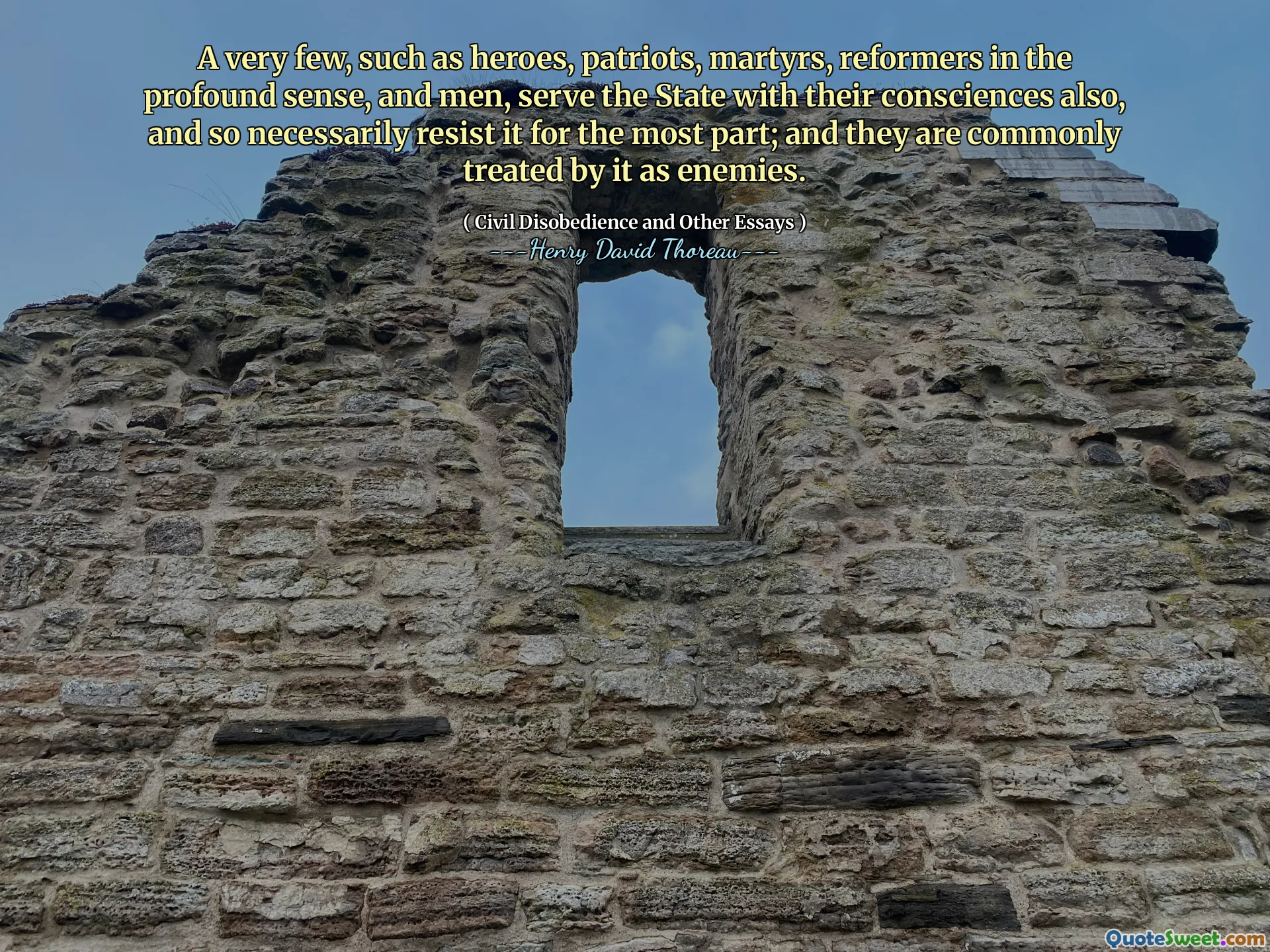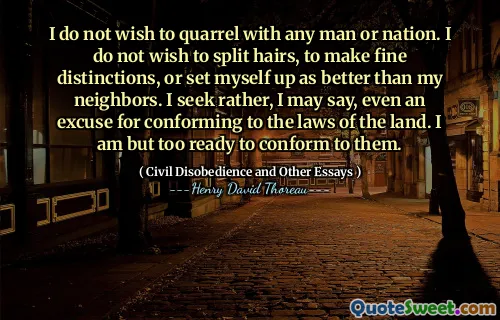
A very few, such as heroes, patriots, martyrs, reformers in the profound sense, and men, serve the State with their consciences also, and so necessarily resist it for the most part; and they are commonly treated by it as enemies.
This quote from Thoreau highlights the rare individuals who serve their society not only out of duty but guided by their moral compass. These figures—heroes, patriots, martyrs, and reformers—embody the noble pursuit of justice often against oppressive or unjust states. Their commitment to their conscience makes their relationship with the State complex: while they aim to improve or reform the societal order, their actions often position them in opposition to the existing authority. This dynamic raises critical questions about the role of individual morality versus institutional power. Thoreau’s insight challenges us to consider whether obedient service is truly admirable if it aligns uncritically with the State’s interests, or if true service requires moral independence even at personal risk. Such individuals, by resisting unjust policies or practices, serve as catalysts for change, reminding us that moral courage can sometimes estrange individuals from those in power. The fact that they are often regarded as enemies underscores the inherent tension in social progress—that those pushing for justice may be vilified by the systems they seek to reform. This perspective is especially relevant today, where activism and civil disobedience continue to test the boundaries of loyalty and conscience. Recognizing the complexity of this moral struggle prompts us to reflect on the importance of integrity and the potential costs of standing against injustice, ultimately affirming that true service often involves sacrifice and moral bravery.







